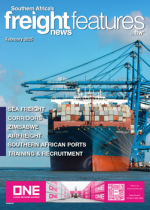The Southern African Development Community (SADC) must overcome its fragmented approach to regional trade corridors to foster growth and enhance efficiency. According to Desiderio Fernandes, president of the Federation of Clearing and Forwarding Associations of Sovereign Africa (FCFASA), achieving this requires prioritising digital integration, fostering trust among member states, and ensuring meaningful private-sector involvement in decision-making.Fernandes points out that the SADC region is lagging significantly behind its peers. “We are still stuck on step one – data exchange between member states – while our borders remain congested,” he said.He contrasts this with the East Africa Community (EAC), which has achieved seamless trade facilitation through initiatives such as a regional customs union, a single declaration system, a shared tracking platform, and mandatory regional laws. “The EAC’s political willingness and regional parliament have been instrumental. Policies agreed at the regional level are mandatory and implemented nationally, which is why their corridors are f lourishing,” he told Freight News.The SA DC ’s failure to create an interconnected, digitised trade environment is a major obstacle. According to Fernandes, the lack of a unified digital interface for corridor management is problematic. While many member states have developed single-window systems at the national level, they remain underutilised. “We still see manual processes in many areas, defeating the purpose of digitisation,” he says.Political unwillingness is another significant challenge. According to Fernandes, member states often view regional programmes with suspicion, prioritising national interests over collective progress. “There’s a reluctance to digitise because that will bring accountability, transparency and reduction of redundancy while at the same time eliminating opportunities for corruption. This short-sightedness is sacrificing national revenue, regional growth and development just for some individual gains,” he said.The lack of private-sector industry-specific specialist regional representative involvement in SADC high-level decision-making is another Achilles heel. Fernandes said the consultative role given to businesses was often discretionary rather than mandatory. “Trade and services are driven by the private sector – we are the users, the executioners and the paying parties. Governments need to engage us upfront to ensure policies work in practice,” he said.Fernandes contrasts this with the EAC, where private sector involvement is institutionalised. “In East Africa, they have embraced a commercial mindset, which is why they’re seeing exponential growth and efficient corridors.”Despite these challenges, Fernandes believes that the SADC has immense potential. “We have the resources, the infrastructure, and the expertise, but without a coordinated regional approach, we will never unlock the full benefits,” he said. “SADC nations need to embrace a regional mindset. Until we break away from operating in silos and prioritise collective progress, we’ll remain stuck while other regions leap ahead.” LV

